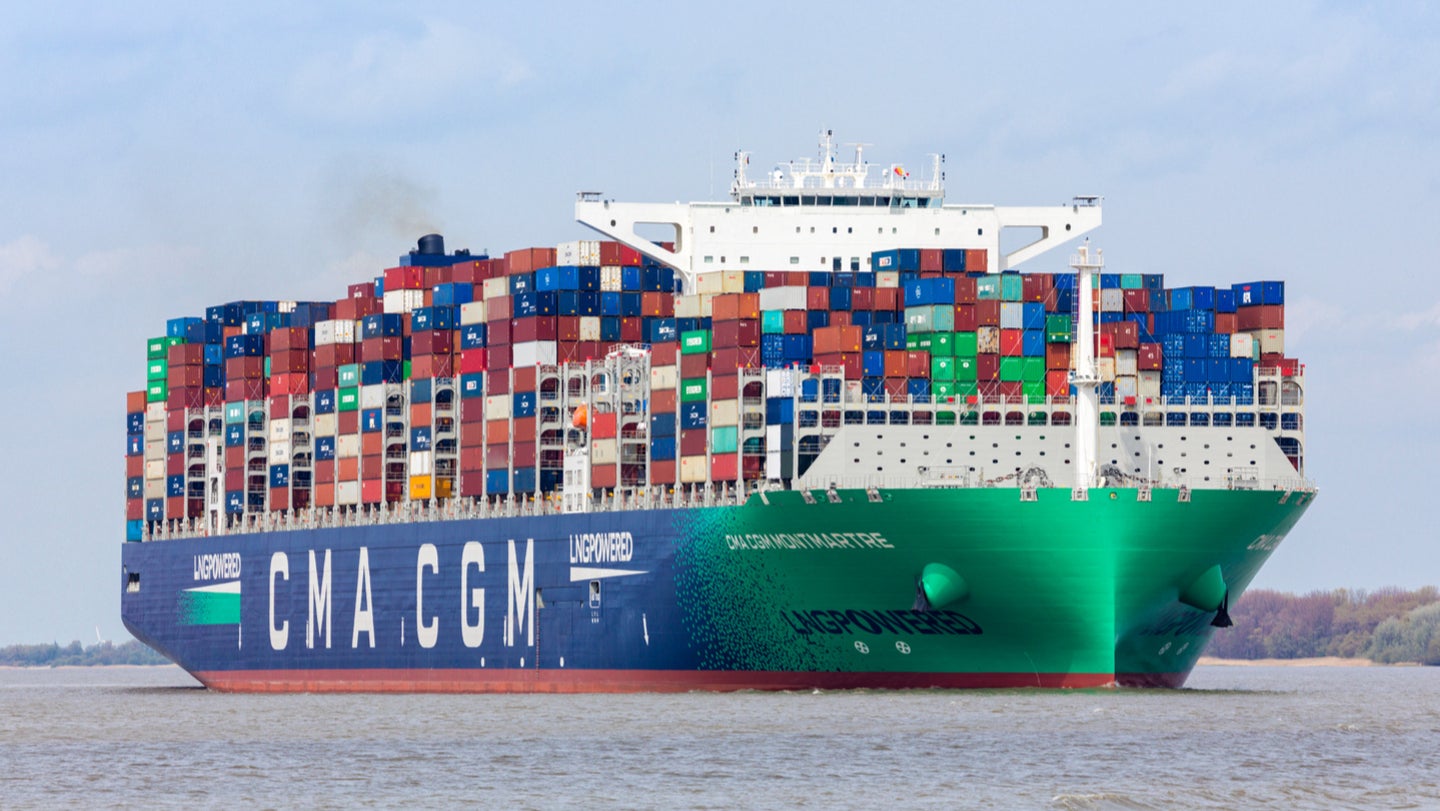
Maritime manufacturing giant Wärtsilä will supply French shipping company CMA CGM with methanol-fuelled auxiliary engines for its six incoming 15,000 TEU container vessels.
Set to be the company’s first methanol-powered vessels, the ships are currently being built at the Dalian Shipbuilding yard in China and form part of the company’s decarbonisation plans.
CMA Ships vice-president Xavier Leclercq said: “Our goal is to achieve carbon neutrality by 2050. By fitting our future fleet with methanol systems, we will be making a serious contribution towards achieving this target.”
The order will include 24 engines in total with three six-cylinder and one seven-cylinder 32M engines for each vessel, which are set to be delivered in Q3 of 2025 following the delivery of Wärtsilä’s equipment in late 2024.
Wärtsilä’s Marine Power business president Roger Holm highlighted the continuing relationship between the two companies, including a focus on decarbonisation: “We look forward to continuing to collaborate with CMA CGM on creating more responsible, more efficient and more sustainable transportation solutions for the industry.”
CMA CGM has previously enlisted Wärtsilä to work on another sustainable fuel project when it made an order relating to its 12 liquefied natural gas-fuelled container ships, including for the delivery of 60 dual-fuel 34DF dual-fuel auxiliary engines.
Methanol has become one of the primary choices for the maritime industry as it looks for more sustainable fuels, as it is produced without polluting emissions and can cut CO₂ emissions by up to 95%, NO emissions by up to 80% and reduce sulfur oxide and particulate matter emissions completely.


